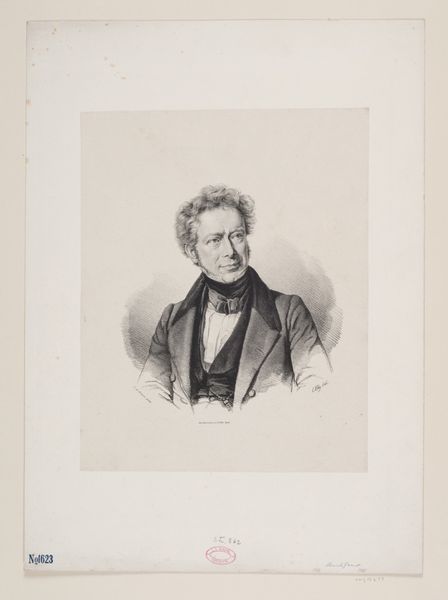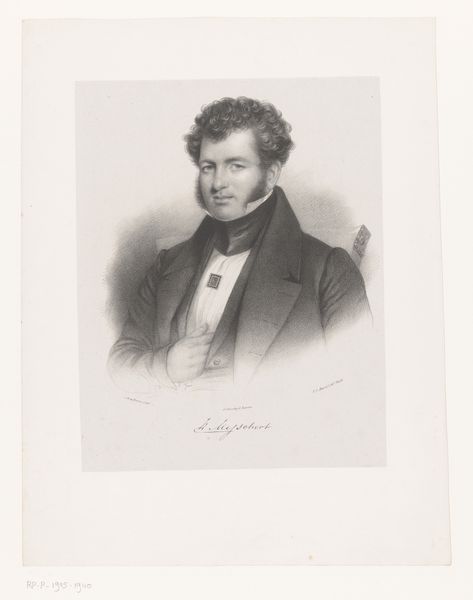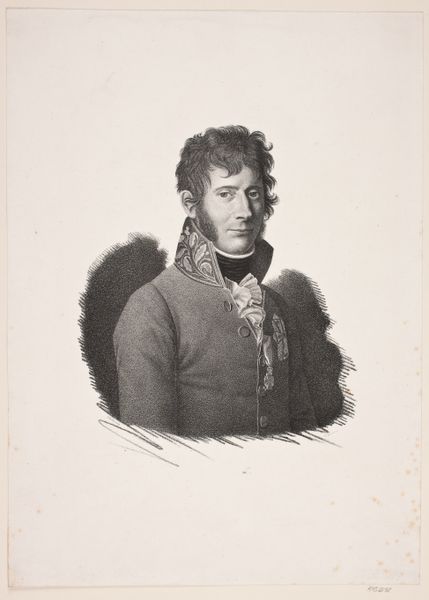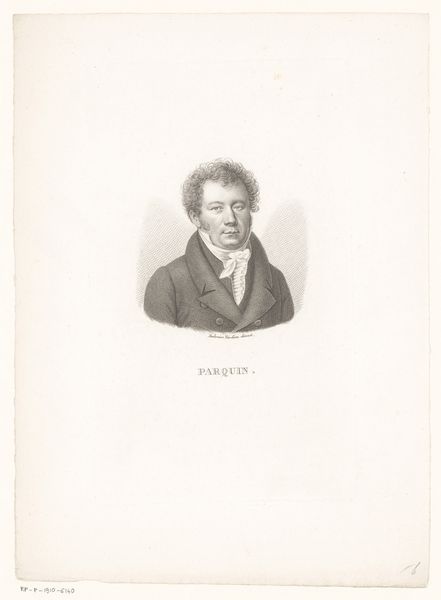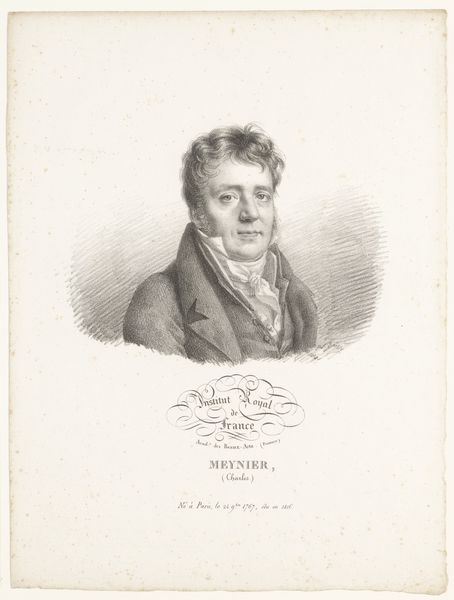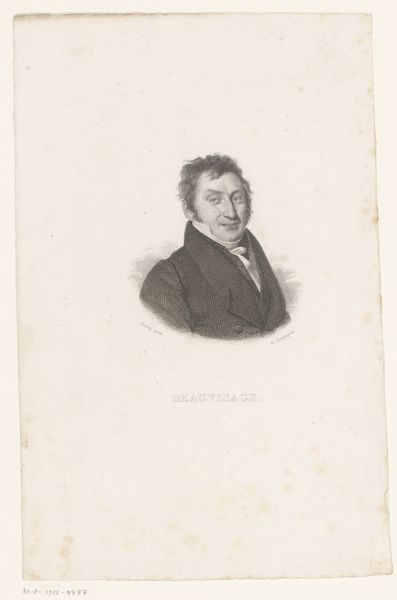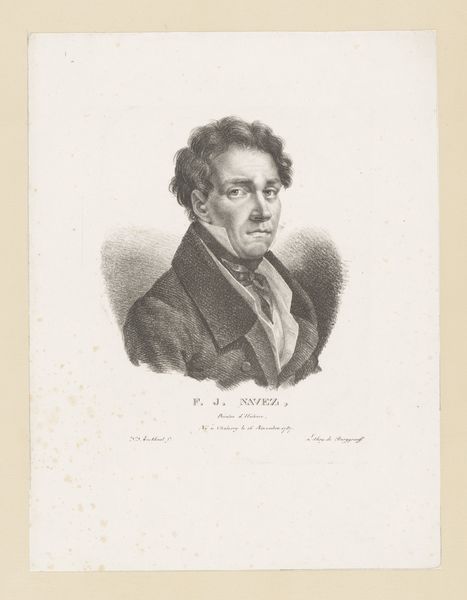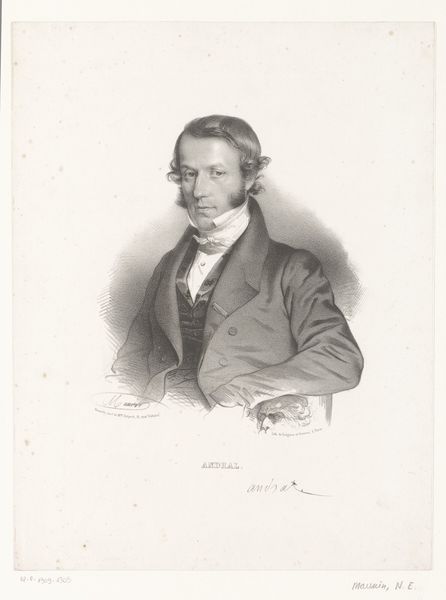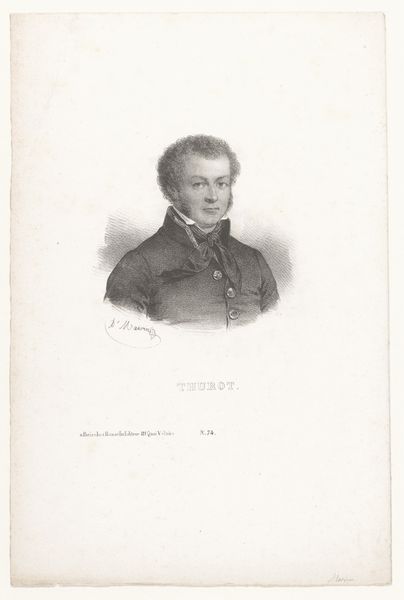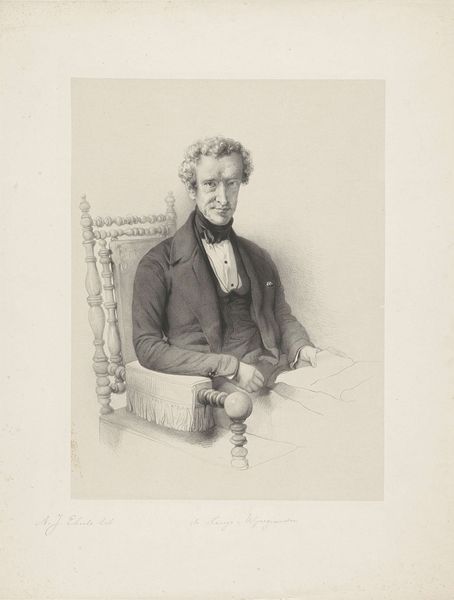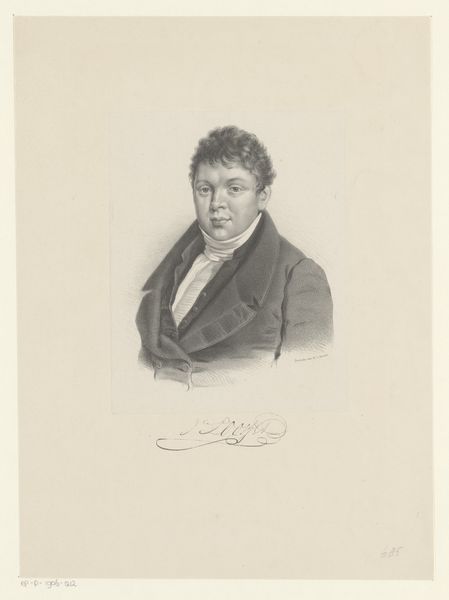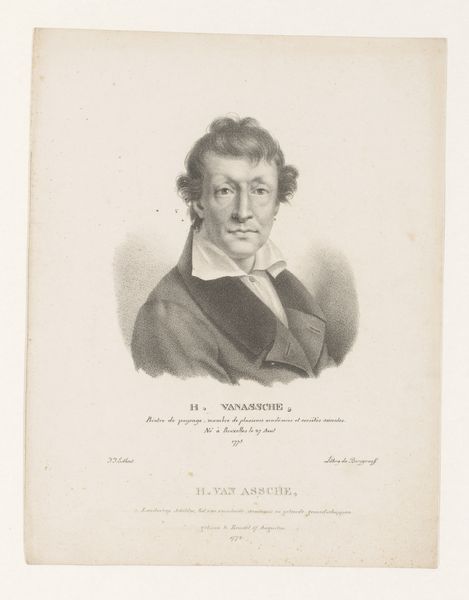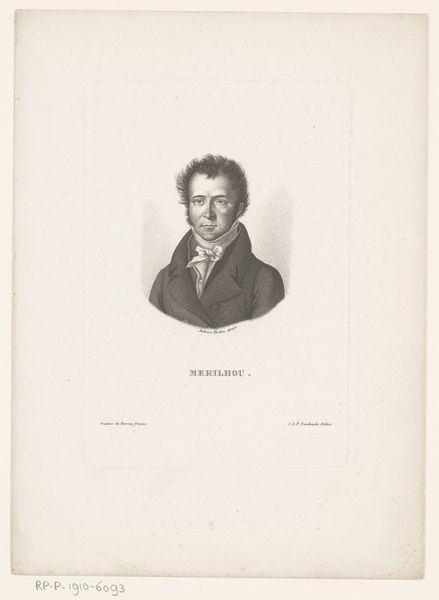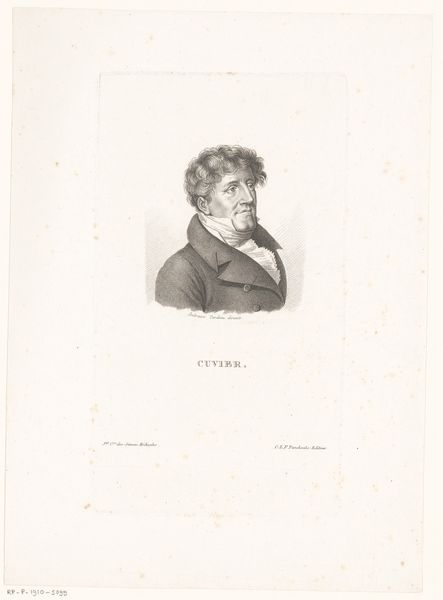
drawing, pencil
#
portrait
#
pencil drawn
#
drawing
#
pencil sketch
#
pencil drawing
#
romanticism
#
pencil
#
portrait drawing
#
pencil work
Dimensions: height 461 mm, width 331 mm
Copyright: Rijks Museum: Open Domain
Editor: This is a portrait drawing of Lazare Carnot, made between 1818 and 1842 by Jean-Baptiste Mauzaisse. It’s pencil on paper, and currently housed in the Rijksmuseum. It has a surprisingly modern feel for a portrait of this era, especially with the soft shading and focus on the face. What can you tell me about the piece? Curator: Well, the creation and circulation of images of political figures like Carnot played a vital role in shaping public perception and national identity during the period. The image wasn’t just about representing the person but also conveying specific ideas about leadership, authority, and the nation itself. Why do you think artists favored portraits as their medium during that era? Editor: Maybe because they could project power and legitimacy in a way that other types of art couldn't? Like, the act of creating a portrait almost validates the sitter, enshrining them in a historical context. Curator: Exactly! Now, consider the timing of this drawing, roughly a decade after the fall of Napoleon. What sort of political atmosphere do you imagine surrounded its creation and reception? Do you think it was meant to be celebratory or commemorative or something else entirely? Editor: I’m wondering if it was an attempt to re-evaluate Carnot’s role during the revolutionary period, after the turbulence of the Napoleonic era, maybe even rehabilitate him as a figure. Curator: Precisely! Notice the techniques used, the subtle lines and soft shading; even those stylistic choices contribute to that potential re-evaluation. Do you find that the subtle style choices shape how you perceive him? Editor: Absolutely. The romanticism feels less about celebrating a hero and more about inviting the viewer to reflect on a complicated historical figure. Curator: That's insightful. I appreciate your observations on how style can inform our understanding of historical figures. This deeper dive really shifted my perspective. Editor: Definitely, considering the social and political context gives a whole new depth to what initially seemed like just a nice drawing.
Comments
No comments
Be the first to comment and join the conversation on the ultimate creative platform.
